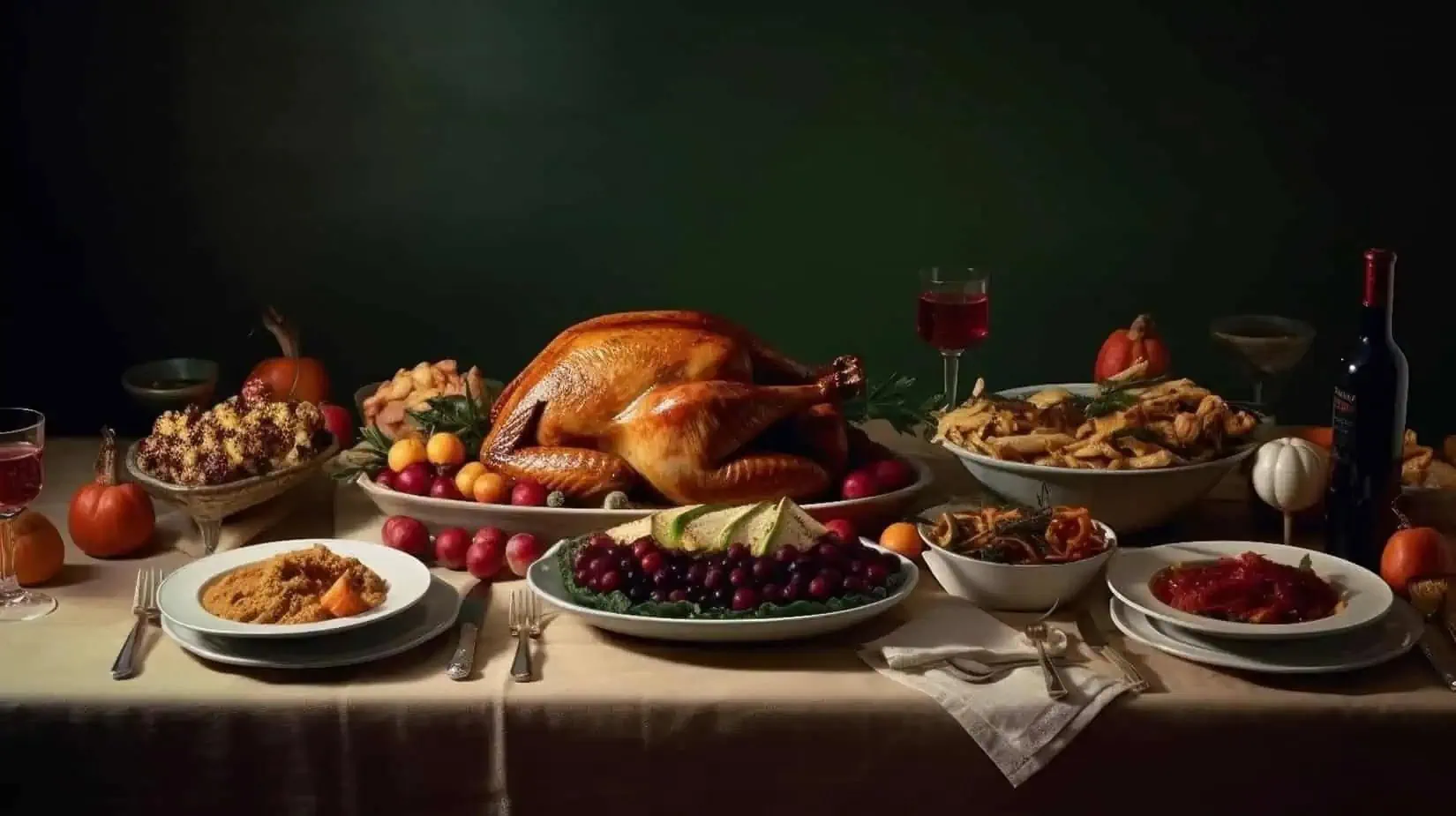Welcome to a fascinating journey through the essence of food and its profound impact on our lives and cultures. This guide is designed for you, the curious explorer, ready to uncover the layers of tradition, memory, and connection that food provides. As we delve into the symbolic and emotional dimensions of cuisine, you’ll discover how food can be a bridge to understanding the diverse tapestry of human culture.
For those venturing into new beginnings, whether seeking your first job or considering a vibrant, inclusive workplace, this journey is more than about food. It’s about recognizing the value of diversity, sharing, and collaboration—qualities that are revered in today’s dynamic workplace. You’re not just looking for a job; you’re seeking a community where your unique contributions are appreciated, and you can grow professionally and personally.
By exploring the cultural significance of food, we invite you to reflect on the beauty of diversity and the strength it brings to our lives and work environments. This guide is your first step towards embracing a wider world enriched by the flavors and stories of different cultures. Let’s begin this journey with open minds and appetites, ready to discover and celebrate the rich diversity surrounding us.
The Heart of Food: More Than Nourishment
Food is everywhere, from our daily meals to grand celebrations. But it’s more than just fuel for our bodies. It’s a rich part of our lives, telling stories and connecting us with others. Let’s dive into why food is significant in cultures worldwide.
A Shared Experience
First off, food brings us together. Consider how a family dinner can turn into a cherished ritual. Or how sharing a pizza can seal a new friendship. It’s not just the eating; it’s the laughter, the stories, and the companionship that comes with it.
Marking the Moments
Also, food is a way to celebrate. Festive foods are at the heart of many holidays and occasions, from Thanksgiving turkey to birthday cakes. These dishes are more than recipes; they’re part of our identity and traditions. For more global festivities, see Celebrating Culture: Festivals Around the World in February.
A Language of Love
Food is a form of expression. Cooking for someone can be an act of care and affection. A homemade meal often says “I love you” louder than words. It’s a universal language that everyone understands.
External Resources:
- Discover how food shapes culture on National Geographic.
- Explore the importance of home cooking with Food & Wine.
As we journey through this article, remember that the cultural significance of food weaves through every aspect of our lives, from daily meals to once-in-a-lifetime celebrations. Food is a symbol, a way of life, and a bridge connecting us across cultures and time.
Joining Hands: Food in Social Celebrations
Now, let’s talk about how food is the star of our social gatherings. It’s not just about eating; it’s about creating memories and strengthening bonds. Here’s how food plays a vital role in bringing people together.
Feasts of Friendship
Gathering around a table with friends isn’t just about food. It’s about sharing stories, laughter, and creating lasting memories. A simple barbecue or potluck can turn into a cherished tradition among friends.
Cultural Celebrations
Across cultures, food is a critical component of festivals and celebrations. From the mooncakes of the Mid-Autumn Festival to the hearty meals of Eid, these foods carry deep meanings. These traditions bring communities together, fostering a sense of belonging and unity.
Weddings and Milestones
Major life events like weddings, anniversaries, and birthdays often revolve around food. These moments are marked by unique dishes or cakes, symbolizing joy and community. It’s incredible how a slice of wedding cake or a birthday meal can evoke such strong emotions and memories.
External Inspirations:
- Learn about food traditions around the world with BBC Good Food.
- Please find out how food brings us together in this Time magazine piece.
As we’ve seen, food is much more than sustenance. It’s a symbol of joy, a tool for connection, and a core element of celebrations worldwide. Through food, we express love, share happiness, and create unforgettable moments.
Faith on a Plate: Religious Food Symbolism
In many faiths, food is not just for eating. It carries deep symbols of belief and tradition. Let’s explore how different religions use food to express devotion and community.
Breaking Bread in Christianity
In Christianity, bread and wine hold special meaning. They signify the body and blood of Christ during communion. This act brings believers closer to their faith.
The Sweetness of Eid
For Muslims, Eid is a time for sharing sweets. Dishes like baklava and sheer khurma spread joy. It’s a time to give and celebrate life.
Passover: A Story of Freedom
During Passover, Jews eat specific foods. Each, like bitter herbs, tells parts of their history. It’s a way to remember and share their journey.
Diwali: A Festival of Lights and Treats
Hindus celebrate Diwali with sweets and snacks. These treats symbolize the victory of light over darkness and good over evil. It’s a joyful time.
External Discoveries:
- Understand the importance of food in religion in Smithsonian Magazine.
Thus, the cultural significance of food extends beyond taste. It binds us to our beliefs, tells our ancestors’ stories, and unites us in shared rituals. Through these edible symbols, we find a deeper connection to our roots and each other.
Taste of Heritage: Cultural Food Identities
Food acts as a gateway to the world’s diverse cultures. Every dish has a story rooted in history, geography, and tradition. Let’s look at how cultural food identities shape who we are.
Signature Dishes: A Nation’s Pride
From Italian pasta to Indian curries, national dishes are a source of pride. They reflect the local environment, history, and collective spirit. These foods are not just meals; they’re a celebration of identity.
Migrating Flavors: Food’s Journey with People
As people move across borders, they take their cuisines with them. This creates a beautiful fusion of tastes and traditions in new lands. It helps keep the connection to their homeland alive.
Local Tastes, Global Connections
Trying someone’s traditional dish is like stepping into their world. It offers a glimpse into their way of life and values. Through food, we can understand and appreciate our differences and similarities.
Learn More:
- Discover the power of food in cultural identity on National Geographic.
- Read about how immigrant cuisine becomes American with Food & Wine.
The cultural significance of food goes beyond nourishment. It tells the stories of our ancestors, celebrates our diversity, and connects us to a global community. It’s a powerful expression of who we are and our origins.
Travel Through Taste: Ethnic Cuisine History
Eating is a journey. Each bite of ethnic cuisine is a step through history and geography. Let’s uncover the stories behind the food we cherish.
Roots and Routes
Dishes like sushi, tacos, and pizza have traveled. They’ve crossed seas and borders, adapting along the way. Now, they tell a global story.
Ingredients Speak Volumes
Every spice, every herb has a tale. They indicate ancient trade routes, climatic conditions, and cultural exchanges. It’s fascinating how much we can learn.
From Farm to Fork
Behind every meal is the land it came from. Crops reflect the geography and climate of a place. It shapes what and how we eat.
Explore More:
- Read about the origin stories of your favorite foods at History.com.
- Understand how ethnic dishes became part of American cuisine with Bon Appétit.
Thus, the cultural significance of food enriches our lives. It bridges past and present, near and far. Through it, we discover not just new tastes but new perspectives. Post your resume and search for Executive Chef jobs hiring on Diversity Employment.
Shared Secrets: Family Recipe Heritage
Every family has treasured recipes passed down through generations. These recipes are more than just instructions; they carry memories, love, and heritage.
A Link to the Past
Family recipes connect us to our ancestors. Cooking the same dishes they did feels like a warm hug from the past.
Stories in Every Bite
Within each recipe is a story. Maybe it’s’ about the first time it was made or the special occasion it’s’ tied to. These dishes carry our family legends.
The Gift of Tradition
Handing down recipes is a gift. It’s a way of keeping our loved ones close, even if they are far away or no longer with us.
By crafting these dishes, we embrace our roots. We ensure our family history and the cultural significance of food live on. It’s’ a powerful reminder of our origins and the love that binds us.
Comfort in a Bite: Emotional Connection to Food
Food isn’t just about taste or hunger. It has the unique power to evoke emotions and memories, offering comfort during both good times and bad.
A Taste of Home
For many, a simple dish can bring back the warmth of home. A bowl of soup, a specific sweet, or even a style of bread can make us feel loved and protected.
Special Moments
Food is central to our celebrations. A birthday cake or a holiday meal reminds us of shared joys and the importance of coming together.
Healing Through Flavors
In times of loss or sadness, certain foods can provide solace. They remind us of happier times, shared with those we miss.
External Connections:
- Explore the psychology behind comfort foods at Psychology Today.
- Discover how food nostalgia impacts us with Cheryl’s Blog.
The cultural significance of food stretches into the realm of emotions, binding us across time and space with its familiar tastes and aromas. Every bite has a piece of history, a dash of memories, and a spoonful of love.
FAQs
Let’s address some common questions about the cultural significance of food. These insights might deepen your understanding and appreciation.
Why is food so important in culture?
Food reflects a culture’s environment, history, and values. It binds us together, creating shared experiences and memories.
Can food help in understanding a culture?
Yes, absolutely. Exploring a culture’s cuisine offers insights into their way of life, traditions, and priorities. It’s a tasty way to learn.
How do foods become a part of cultural identity?
Through repeated use in rituals, celebrations, and daily life. Over time, certain foods embody the essence of a culture’s identity.
Why do we have emotional connections to food?
Food is linked to memories, both personal and communal. Certain dishes can evoke strong feelings of nostalgia, comfort, and love.
The cultural significance of food goes beyond nourishment. It’s a vital part of our identity, bringing joy, comfort, and a sense of belonging. So, next time you savor your favorite dish, remember it’s taste of history, culture, and emotion.
Conclusion
As we’ve explored how food impacts our lives, we have realized that it does more than satisfy hunger. The cultural significance of food touches every aspect of our existence, from family traditions and religious ceremonies to social celebrations and personal comfort. Food is a universal language that transcends borders, bringing people together in a shared experience of taste, tradition, and togetherness.
Let’s face the diversity that makes each of us unique. Join Diversity Employment today and be part of a job board and community that celebrates every culture, tradition, and story. Let’s make the world more inclusive and flavorful, one plate at a time.




